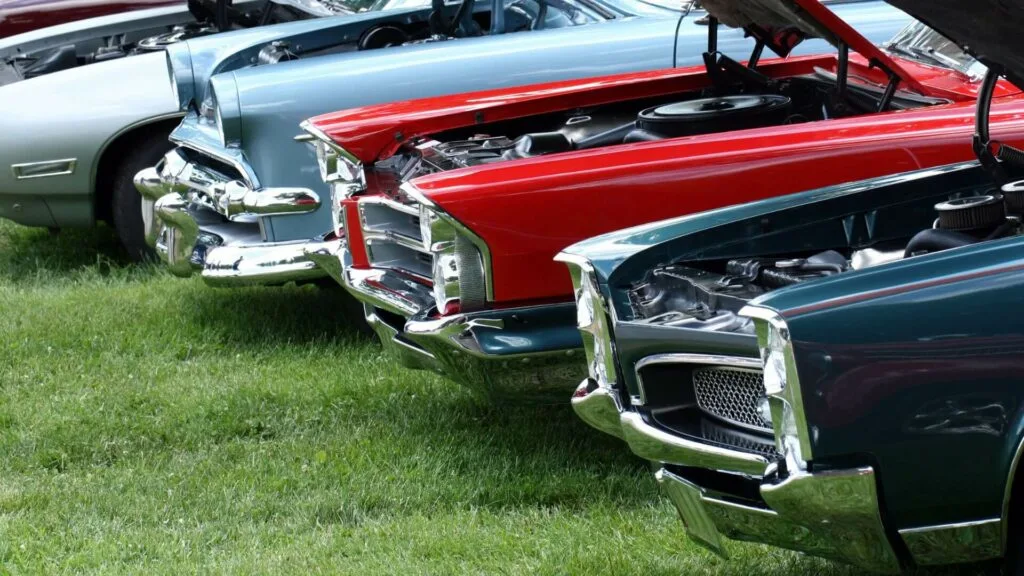Classic cars are not just beautifully crafted pieces of engineering, they can also be a lucrative investment opportunity. In the world of collectibles, classic cars have emerged as an asset class that combines passion and profit. For beginners, however, the vintage vehicle market can seem daunting. This guide aims to demystify the process, providing foundational knowledge and key insights into investing in classic cars. Whether you’re a seasoned investor looking for a new asset class or an auto enthusiast wanting to monetize your passion, this guide will equip you with the necessary tools to navigate the classic car market.

Understanding the Classic Car Market
Just like in any other market, the classic car market is driven by the forces of supply and demand. With the advent of online auctions and digital platforms, enthusiasts and investors now have access to an extensive inventory of classic cars, removing the constraints of geographical location and broadening the spectrum of available options. Rarity, condition, brand reputation, and historical significance are among the key factors that play a role in determining the value of a classic car. These factors intertwine to create a complex ecosystem in which enthusiasts and collectors immerse themselves. By delving deep into the nuances of this market, one can gain a comprehensive understanding of its dynamics, enabling informed decisions and successful investments.
Assessing the Condition of a Classic Car
When it comes to classic cars, their condition holds immense importance. Prospective buyers should set their sights on vehicles that exhibit excellence in both mechanical performance and aesthetic appeal. It is advisable to enlist the expertise of a professional to conduct a thorough assessment of a classic car’s condition before committing to a purchase. This ensures that buyers have a complete understanding of the car’s current state and potential future maintenance requirements. By taking this extra step, buyers can make more confident decisions and avoid unexpected expenses down the road.
Selecting the Right Classic Car for Investment
While the allure of classic cars is undeniable, not all of them possess the qualities necessary for fruitful investments. To maximize the chances of a successful venture, it is prudent to conduct extensive research on popular models and brands. Analyzing historical price performance provides valuable insights into the potential for appreciation over time. By focusing on cars that have demonstrated consistent growth in value, investors can make more informed decisions and mitigate risks. Additionally, considering factors such as originality, documentation, and rarity can further enhance the investment potential of a classic car.
Investing in Classic Car Restoration
The art of classic car restoration can be a rewarding endeavor, both financially and personally. However, prospective restorers should be aware that this undertaking demands a substantial investment of time, effort, and financial resources. Attention to detail, craftsmanship, and a deep understanding of the specific vehicle are vital components in achieving exceptional results. Before embarking on a restoration project, it is essential to carefully evaluate the potential return on investment while considering the costs associated with the restoration process. In addition, researching and sourcing authentic parts and materials can contribute to the overall quality and value of the restored classic car.
Managing Your Classic Car Investment
Acquiring a classic car is just the beginning of a long-term commitment to preserving its value. Proper maintenance and care are crucial elements in safeguarding the investment. Regular servicing, meticulous storage, and comprehensive insurance coverage are all pivotal in maintaining the car’s condition and protecting its value. By implementing a proactive maintenance plan, owners can ensure that their classic car continues to shine and appreciate in worth. Moreover, actively participating in classic car events and gatherings can help build connections within the community and provide opportunities for learning and sharing knowledge with fellow enthusiasts.
Selling Your Classic Car Investment
Knowing when to part ways with a beloved classic car is a decision that requires careful consideration. Monitoring the market closely and staying attuned to trends and demand fluctuations are key aspects in determining the optimal time to sell. Auctions and private sales represent popular channels for selling classic cars, offering opportunities to connect with fellow enthusiasts and collectors who understand the unique value these vehicles hold. Additionally, highlighting the car’s unique features, history, and restoration details can attract potential buyers and increase its selling potential. Taking the time to find the right buyer who appreciates the car’s value can ensure a successful and satisfying transaction.

Investing in classic cars is more than just a monetary venture—it’s a journey steeped in passion and nostalgia. The allure of these timeless machines lies not only in their potential for financial return but also in their ability to evoke a sense of historical significance and craftsmanship. While navigating the classic car market requires a keen understanding of various factors such as market dynamics, car condition, and restoration potential, the rewards can be immensely satisfying. Whether you’re an investor seeking to diversify your portfolio or an auto enthusiast hoping to monetize your passion, investing in classic cars offers a unique opportunity to combine profit with passion. With the right knowledge, diligent research, an eye for quality, and an unwavering commitment to maintenance, you can embark on a rewarding journey into the fascinating world of classic car investment.

Jessi is the creative mind behind The Coffee Mom, a popular blog that combines parenting advice, travel tips, and a love for all things Disney. As a trusted Disney influencer and passionate storyteller, Jessi’s authentic insights and relatable content resonate with readers worldwide.
